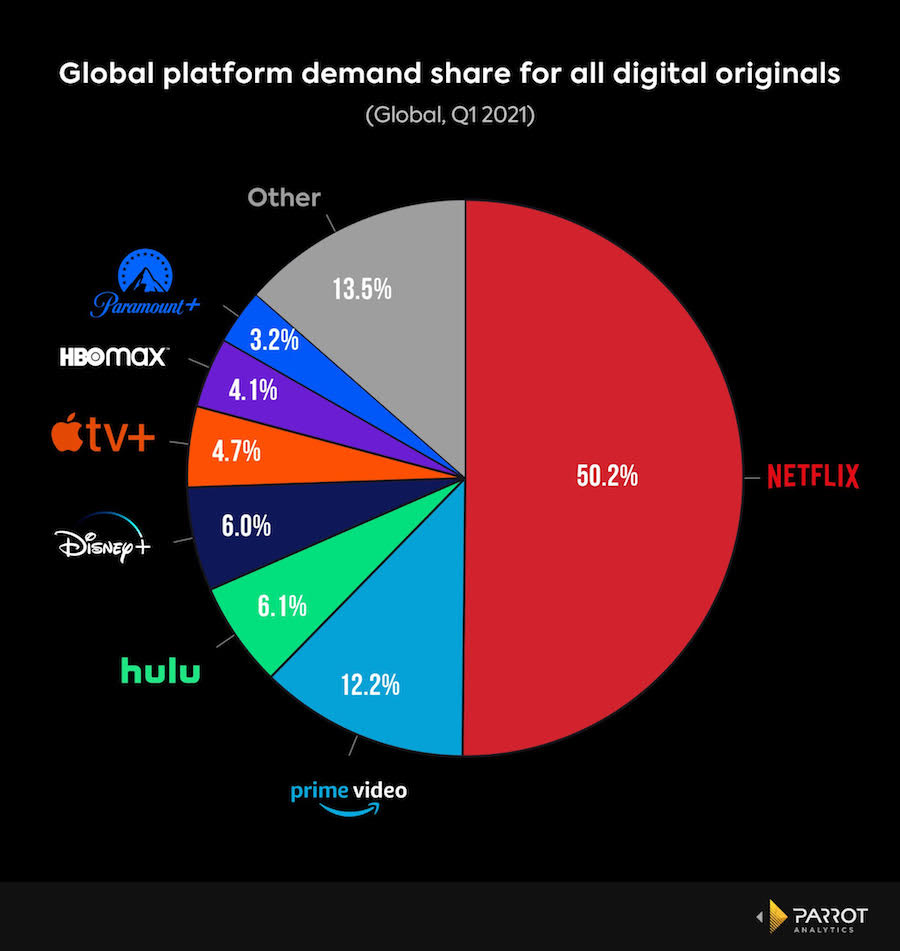New Platforms Gaining Demand Share at Expense of Netflix

Source: Media Play News
Earlier this month, I discussed how money compounds slowly, how the world often changes at a geologic pace. This is not always the case: Sometimes, the world can be upended relatively quickly. Case in point: Netflix.
They began life doing DVD rentals through (!) snail mail. The website allowed you to create an ordered queue of what you wanted to see; each time you mail back a DVD the next item on your list is mailed to you. This fixed the “Why do we want to drive to the store (!) when we won’t know what to rent and besides they are out of it” problem, to say nothing of late fees.
In the early days of broadband, Netflix rolled out an ambitious program to stream content over the internet. It was clunky and imperfect but gradually improved. In 2010, they offered a streaming-only plan (no more DVDs by mail). Netflix is still the dominant video streamer, with more subscribers than Amazon Prime, Hulu, Disney+, HBO Max, Apple+, Paramount+ et al. combined.
But a > 50% market share is down from domination when they invented the sector 12 years ago. Does anyone imagine that Netflix will be dominant in 50 years? What about 20 years? 5? I don’t know, but if history is any guide, at a certain point, that first-mover advantage will in large part erode away.
This is not about which company is the biggest or hottest at the moment — tastes change, sectors rotate in and out of favor. Strategic advantage in one era becomes an anchor tying you to the past in the next. A pivot — like DVD by Mail to Streaming is less common than you imagine.
To get a sense of how the world changes, consider the top 10 S&P Companies from 1980–2020 (via John VanGavree). Over that 40 year period, priorities change, economics shift, even investor taste changes. In the 1980s and ’90s, AT&T and IBM were the big guys in technology; today, 6 of the top 10 are technology. Will Exxon or any other Oil company ever grace the top 10? GM, GE are yesteryear stories.
The list of innovative and groundbreaking companies that changed the world only to fade into relative obscurity is endless: Blockbuster, obviously, but also RCA, Lucent, Woolworth, Citi, Sears, US Steel, Eastman Kodak, Circuit City, etc.
Successful companies come and go; terrific success is difficult, delicate flower to keep alive. Long-lasting is incredibly rare indeed.
The world changes. The most important companies in the world wake up one day to discover their products are no longer desired and their services are no longer needed. “Best of luck in your future endeavors, thank you for your years of service.”
When it comes to corporate survival, Capitalism is cruel but fair.
Previously:
Gradually, Then Suddenly (October 1, 2021)
The Hidden World of Failure (October 23, 2020)


